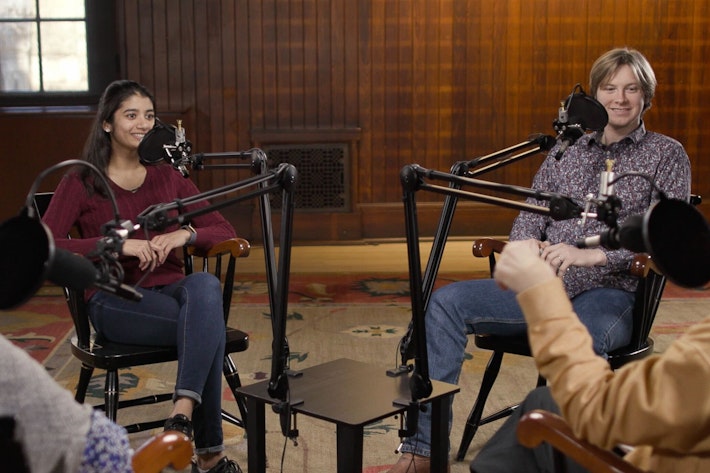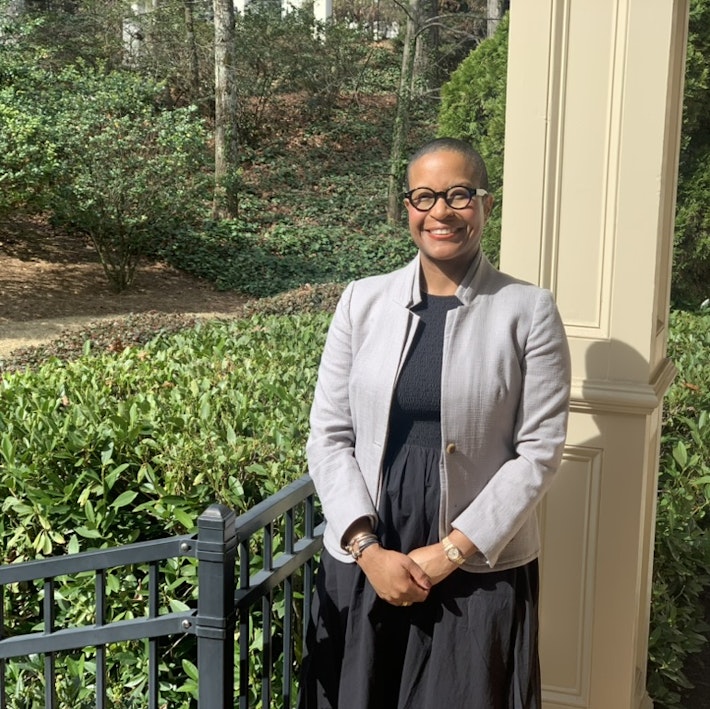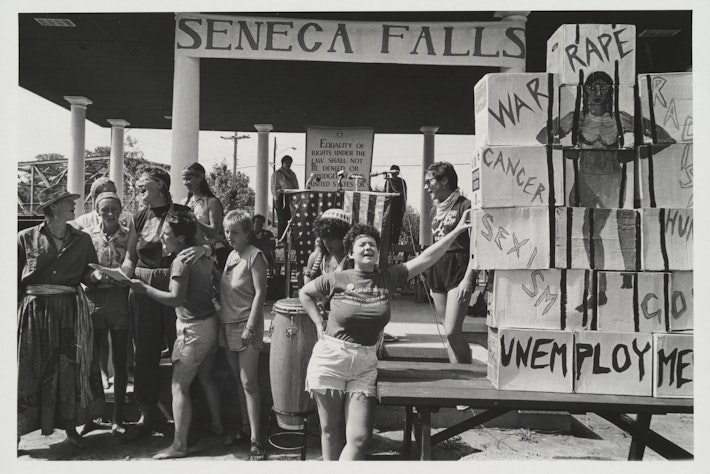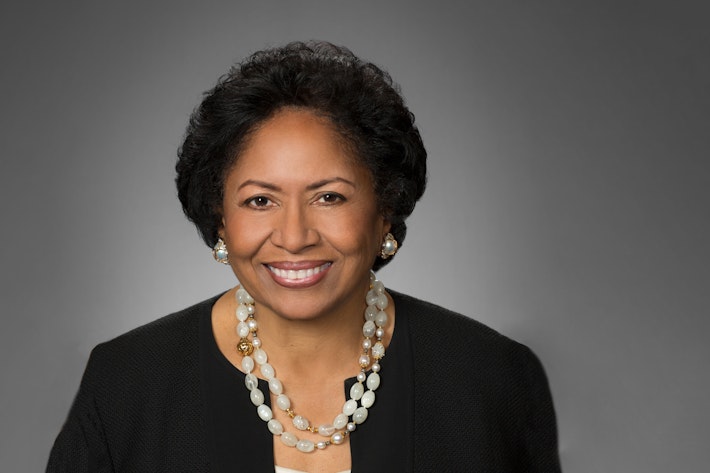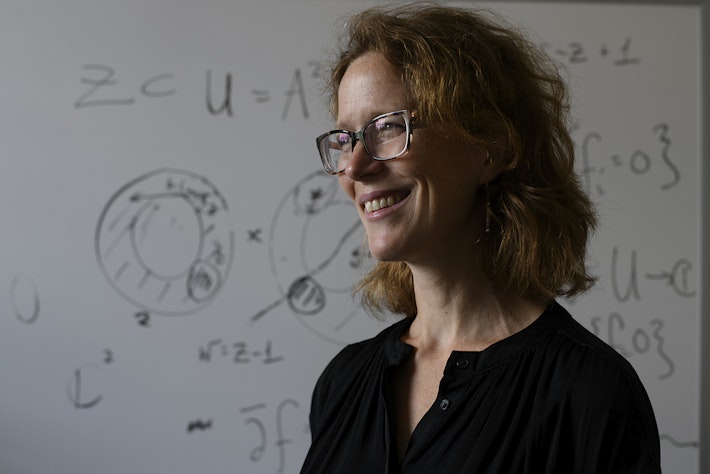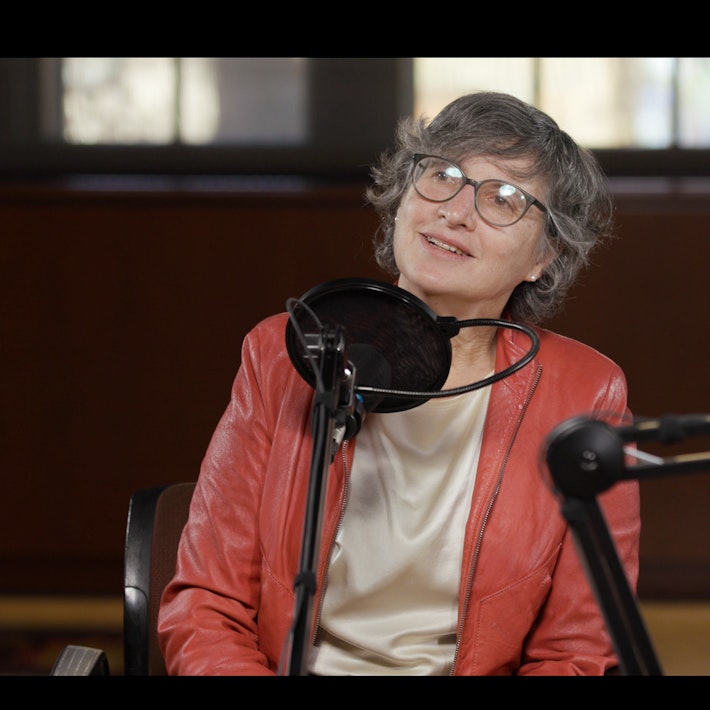Evidence of Social Change? A Working Writer’s Papers Come to the Library
Jennifer Finney Boylan, the inaugural Anna Quindlen Writer in Residence and a professor of English at Barnard College, is a well-known author, trans activist, and television personality.
Jennifer Finney Boylan, the inaugural Anna Quindlen Writer in Residence and a professor of English at Barnard College, is a well-known author, trans activist, and television personality. Among her 15 books is the award-winning memoir She’s Not There: A Life in Two Genders (Random House, 2003). In February 2017, the Schlesinger was pleased to host “Gender, Politics, and Imagination: An Afternoon with Jennifer Finney Boylan,” during which she spoke about privilege, politics, and poetics. She has since donated her papers to the Library, and they were added to the online catalog in August. We spoke to Boylan about her decision to entrust her papers to us.
Why did you choose the Schlesinger as the home for your papers?
Well, the Schlesinger has one of the world’s best collections of the works, the writings, and the artifacts of American women. Adrienne Rich’s papers are there. The archives of the National Organization for Women are there. The original drafts of Our Bodies, Ourselves, by the Boston Women’s Health Collective, are there. It seemed like auspicious company for someone like me, someone whose woman-hood has been hard fought—and hard won. I’m also honored, of course, by the connection to Radcliffe, which, both as an independent college and as a Harvard institute, is dedicated, among other things, to the role of gender in education.
Also, to be honest, it was Jane Kamensky who first reached out to me. I don’t have an obvious connection to Harvard, although I’ve spoken there on a couple of occasions. But some of the more obvious choices—Wesleyan, which I attended as an undergraduate, and Colby, where I worked for 25 years—didn’t seem exactly breathless at the prospect of acquiring my works. Jane Kamensky was different. She made it clear from the first that the fight for transgender rights and equal protection under the law were part of what the Schlesinger saw as an important cultural milestone in the 21st century. She made me feel that my papers would be valued and that they would be part of a larger collection dedicated to the progress of women—and men—as we seek to create a more just society.
In your view, how will your papers enrich the Library’s holdings?
You’re making me grin because you’re asking me to speak of my own work in an immodest, boastful manner, and that doesn’t really come naturally to me. Wasn’t there a character called Furious Frog in Aesop who kept puffiing himself up larger and larger, to impress everyone else, until finally he exploded? I want to avoid that fate. But let’s just say that in my various manuscripts and artifacts, archivists and readers might find evidence of a change in the culture’s understanding of gender and of the fight for transgender acceptance in particular. My memoir, She’s Not There, was the first best-selling work by a transgender American, and I hope that that speaks to a sense of progress. One of the manuscripts I’ve donated to the collection contains handwritten edits and suggestions by my friend Richard Russo, who also figures as a character in that book. Since Rick won the Pulitzer Prize for Fiction, his annotations on a book that already has some historical significance are, I think, an additional treasure.
What was it like—logistically, intellectually, and emotionally—to review your papers in preparation for the transfer?
Well, in some ways it was grim, because I felt from the outset that it was like preparing for life after I’m gone. And as William Saroyan said, “Everybody has to die, but I always believed an exception would be made in my case.” It felt like preparing for the grave. Jane Kamensky said to me, “Well, think of it more like picking out a nice burial plot”—a comment that failed to cheer me.
But after the initial sadness of it, there was joy, too, in part because now I know that some of the things I care about will have a good home. And there are a couple of manuscripts that I never published that will be available, and which may indeed find readers in years to come. There’s a novel titled “Sex in the Wilderness,” about a group of seven friends through-hiking the Appalachian Trail, from Georgia to Maine, with the ashes of a friend of theirs; their intention is to sprinkle those ashes on top of Mt. Katahdin. Only one of the seven makes it all the way. It’s a book I love, and which I hope will bring joy to future readers.
How did you choose what to archive and what to seal or immediately make public?
I didn’t want to embarrass anyone, at least while I’m alive. I have a pretty vivid diary of my transition from male to female from 2000 to 2003 or so. That I’ll keep sealed up, since it names a lot of names. Also, there’s a manuscript of a screenplay called “The Language of Women,” which I wrote with Rick Russo before transition. There are some fairly raw things in that as well, and I wanted to make sure I didn’t complicate my friendship with him or anybody else. After I’m gone, of course, everybody’s on their own.
What do you hope future researchers will take away from your personal effects?
I hope they will provide snapshots of what it meant to be a working writer in the late 20th century. The first items I donated are short works I created while a graduate student in the 1980s; the collection goes right up to the current day (and more items will come in years ahead). I know that it’s my work on gender—and how that work is reflected in some of my fiction—that might catch historians’ eyes first. But I also hope that readers will be touched by the stories themselves—the memoirs and the short pieces and the fiction. I don’t know whether they will see these works as having been written by a man, or a woman, or someone who traveled between those realms. But I do hope people will be moved by these snapshots—some of them clear, some of them blurry—of what it meant to be alive during these strange, urgent years.


